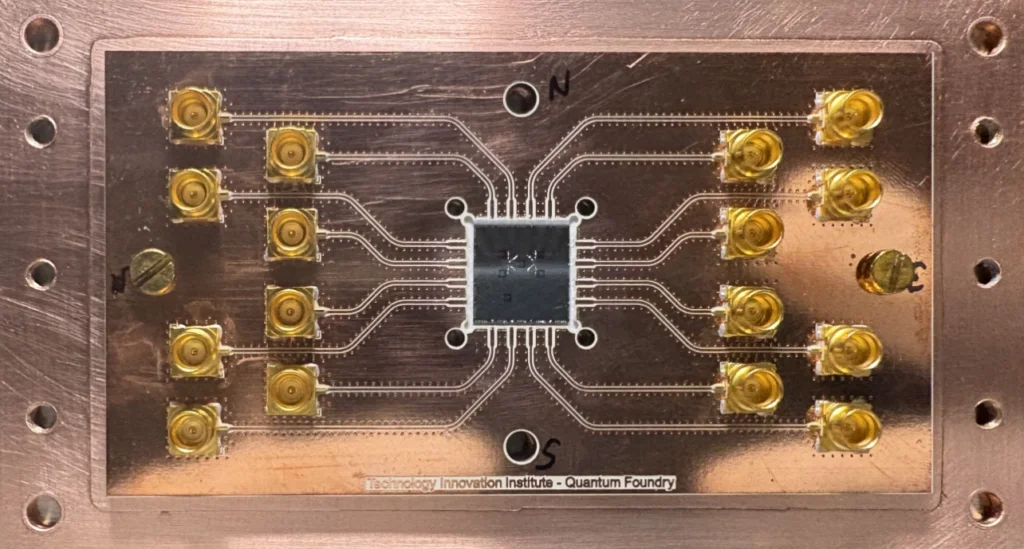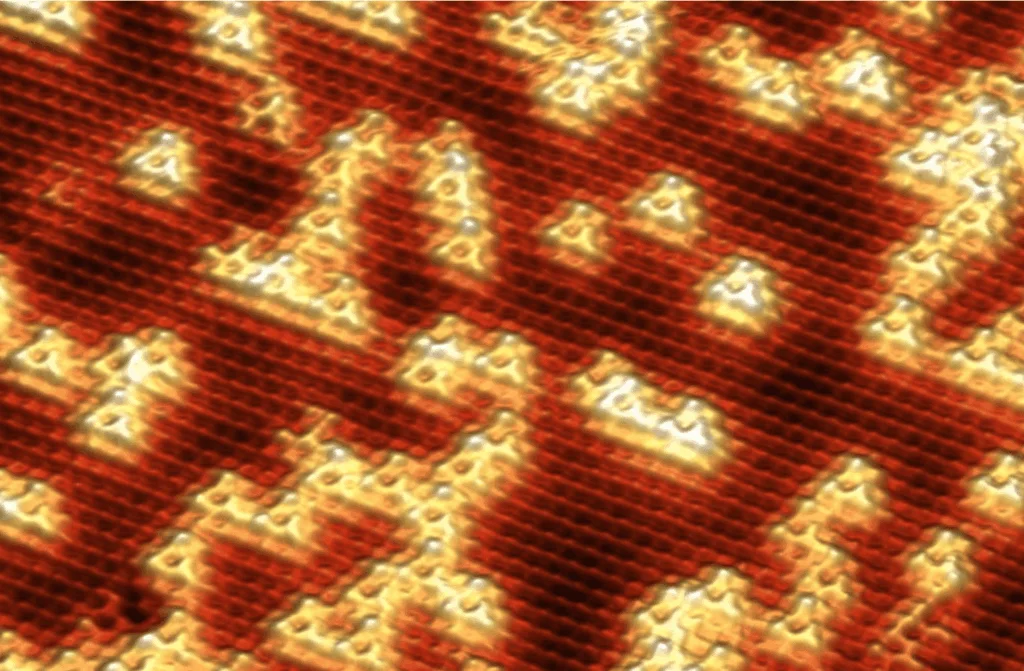Insider Brief
- Investor Peter Barrett argues in MIT Technology Review that quantum computing is advancing faster than predicted, challenging Nvidia CEO Jensen Huang’s 15- to 30-year timeline.
- Breakthroughs like Google’s Willow processor and PsiQuantum’s planned large-scale quantum systems highlight rapid progress in both hardware scalability and algorithm efficiency.
- Barrett emphasizes that quantum computing could revolutionize materials science, drug discovery, and energy, enabling a shift from trial-and-error methods to precise design.
Peter Barrett, a general partner at Playground Global and a prominent deep-tech investor, challenges conventional timelines for quantum computing, arguing that the technology is converging on utility far faster than many expect. Writing in MIT Technology Review, Barrett critiques NVIDIA CEO Jensen Huang’s recent claim that practical quantum computing is still 15 to 30 years away, indicating it is a significant underestimation.
Quantum computing is inevitable and increasingly imminent, Barrett suggest, pointing to breakthroughs in hardware, algorithms, and real-world applications driven by companies in Playground Global’s portfolio, including PsiQuantum and Phasecraft.
Accelerating Progress in Quantum Hardware
In the piece, Barrett covers recent advances in quantum hardware as evidence that the field is on the brink of commercial viability. In 2024, Google’s Willow processor demonstrated quantum supremacy by completing a calculation in under five minutes that would take a classical supercomputer 10 septillion years. More importantly, Willow showed that quantum errors can be exponentially reduced as more qubits are added, adding that this is a key requirement for fault-tolerant quantum computing.

While Willow’s capabilities remain too limited for commercial applications, the proof of concept is clear. PsiQuantum, one of Barrett’s portfolio companies, is now building two quantum computers, each 10,000 times larger than Willow. These machines, set to debut by the end of the decade, are designed to tackle complex problems in materials science, drug discovery and quantum mechanics. Unlike Huang’s suggestion that Nvidia GPUs will be integral to quantum error correction, PsiQuantum’s systems rely on custom hardware designed for speed and efficiency.
Quantum Algorithms Outpace Hardware
While hardware often steals the spotlight, Barrett writes that quantum algorithms are advancing even faster. A collaboration between PsiQuantum and pharmaceutical giant Boehringer Ingelheim achieved a 200-fold improvement in simulating drugs and materials, making previously intractable problems more manageable. Similarly, Phasecraft, another Playground Global portfolio company, has optimized quantum algorithms for simulating crystal materials, edging closer to outperforming classical methods on today’s quantum devices.
“A recent collaboration between the pharmaceutical giant Boehringer Ingelheim and PsiQuantum demonstrated a more than 200x improvement in algorithms to simulate important drugs and materials,” Barret writes. “Phasecraft, another company we have invested in, has improved the simulation performance for a wide variety of crystal materials and has published a quantum-enhanced version of a widely used materials science algorithm that is tantalizingly close to beating all classical implementations on existing hardware.”
Why Quantum Computing Matters
Quantum computing’s potential lies in addressing the limitations of classical computation, according to the investor. Existing tools, like density functional theory (DFT), struggle to accurately model quantum systems, leaving critical gaps in fields like chemistry and materials science. For example, DFT faltered during the 2023 LK-99 room-temperature superconductor debate, providing mixed results and forcing researchers to revert to experimental methods.
Even advanced AI systems like DeepMind’s Graph Networks for Materials Exploration (GNoME) depend on DFT for training data, which limits their accuracy. Quantum computers, by contrast, operate on the principles of quantum mechanics, enabling precise simulations that could transform industries.
Barrett describes this shift as moving from “discovery to design.” Instead of relying on trial-and-error methods to develop new materials and drugs, quantum computing could allow researchers to systematically explore vast design spaces, unlocking innovations that were previously unimaginable.
The Challenges Ahead
Despite the optimism, Barrett acknowledges that scaling quantum computers to millions of qubits will require significant investments in infrastructure, technology and talent. PsiQuantum and other industry leaders are tackling these challenges, investing billions in advanced silicon photonics, high-speed error correction hardware, and sensitive photon detectors.
Barrett compares the potential impact of quantum materials to a world without metals.
“Imagine our world without metal. We could have wooden houses built with stone tools, agriculture, wooden plows, movable type, printing, poetry, and even thoughtfully edited science periodicals,” he writes. “But we would have no inkling of phenomena like electricity or electromagnetism—no motors, generators, radio, MRI machines, silicon, or AI. We wouldn’t miss them, as we’d be oblivious to their existence.”
Today, we are living without quantum materials and are only beginning to grasp what potential and abundance they could produce, he suggests.
However, Barrett’s vision for quantum computing extends beyond materials and niche applications, however and prepares a path toward innovations in energy, medicine, and materials science. The ability to design new superconductors, for example, could revolutionize energy storage and transmission, while breakthroughs in drug discovery could address diseases that have eluded treatment for decades.
Barrett writes: “With large-scale quantum computers on the horizon and advancements in quantum algorithms, we are poised to shift from discovery to design, entering an era of unprecedented dynamism in chemistry, materials science and medicine. It will be a new age of mastery over the physical world.”















